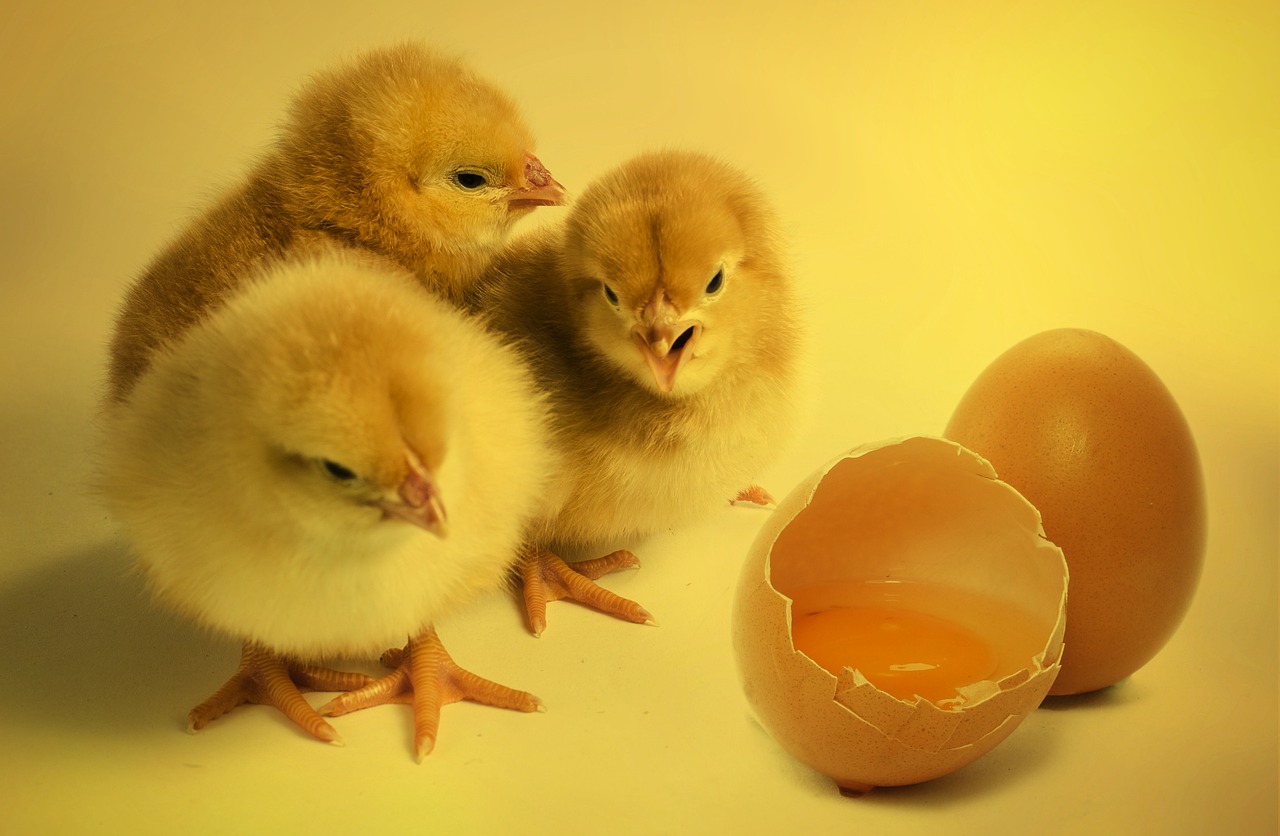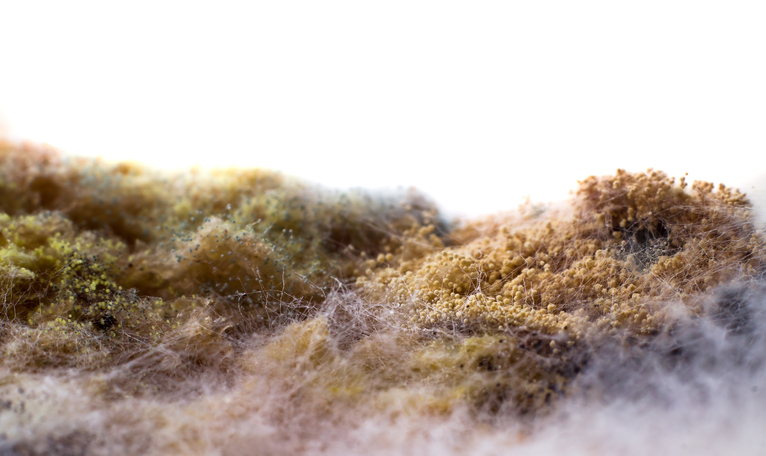If you want to know the mistakes Pro farmers never make, you have to read this post. Here, I highlighted 8 mistakes you must avoid if you want to be successful in the poultry business.

My Student and during morning function in our poultry pen
Also read: How to Stop watery whitish, greenish, brownish-yellow, and bloodstain in your Chickens poops for full Recovery
Poultry farming is no doubt one of the most profitable businesses in the agricultural subsector, with several lucrative niches like meat production, egg production, breeding, feed production, etc.
However, success in poultry farming is not a walk in the park. There are some basic mistakes you must avoid if you must succeed in poultry farming. I have highlighted 8 common mistakes you must avoid if you want to succeed in poultry farming.
A costly mistake can cost a low mood in a farmer
1 Not investing in yourself and your workers
I will liken poultry farming to a beehive. A beehive contains honey protected by loyal soldier bees, to get to the honey, you must learn how to do with the bees to avoid been sting.
The same applies to poultry farming, if you think of profit you should think of how to get the profits and how to overcome the challenges that come along with it, if you don’t, you will get stung by the challenges - which I will not wish for you.
So, you have to invest in yourself and your workers, learn the rudiments, attend a workshop, go for training, etc. Don’t make the mistake of starting a poultry farm without fundamental knowledge and training. Problems that stems from lack of training can wipe your whole flock.
.
I made the same mistake some years back while in secondary school, my experience was terrible, although, in the beginning, I was smiling making money as a young man (which is usually the bait).
Subsequently, as time passed by, I began to experience unstoppable death in my poultry farm caused by so many unknown diseases and other factors. I later got stung by my ignorant. The disease almost wiped out the whole flock, we were lucky to have eaten chicken that Christmas.

A facilitator instructing a group of farmers
My dear prospective poultry farmers, if you want to succeed in this business you must do the following
- Make it mandatory to attend training, seminars to improve your knowledge in poultry farming.
- Attach yourself to an experience poultry farmer. Be humble enough to help out on the farm, in that way the farmer will be more open to teach you his or her secrets.
- There should be ongoing training for your farmworkers. Invest in them as well, you cannot do everything yourself.
If you are knowledgeable in poultry farming, you should be able to identify some common poultry diseases, buy and give the right medications, implement biosecurity measures on your farm, manage your finance, market your products, etc
Once you invest in yourself and your workers, other mistakes will be secondary
Also read: 6 smart tips to increase the bodyweight of your broiler chicken
2. Buying your birds from poor hatchery/breeder
Buying your birds from a poor hatchery comes with so many problems that could be so frustrating. These are some of the problems you could inherit from a poor hatchery
- Health issues: There are some vertical diseases (from hen to chick) that are associated with breeder flock, like reoviral arthritis that can be contracted from breeder parents, and to a lesser extent from one chick to another.
- Buying such infected birds could cause a huge disaster in your poultry farm. This normally happens if the parent breeds were not vaccinated against that disease. Therefore, you must buy your birds from reputable hatchery-do background research on that hatchery before buying.

Newly hatched baby chicks
Practice all in; all-out operation, that is you should not mix a new batch of birds with already existing ones. If you must add new birds to already existing ones, you should ensure you isolate them for some days to make sure that they are disease-free before introducing them to the flock.
- Dishonest breeder: If you buy your birds from a dishonest breeder, they will (in some cases) supply poor quality birds or mix it with unwanted breeds. For example, you can order for broiler and the breeder will mix it with cockerels, which grow very slow compare to broilers.
The tricky part of this is that some of these problems may not be apparent at first until after some days and weeks.
Make sure you do your research. Ask an experienced farmer for advice- it works all the time.
Also read 8 Things I wish I’d known About Poultry farming. Don't neglect No 7
3.Poor hygiene in the poultry house and poor ventilation
Poor hygiene is a threat to poultry birds. Ensure you clean your pen regularly, decontaminate feeders, and drinking channels Chlorine containing disinfectants.
Also, ensure your pen is well ventilated from both sides, and for proper air movement. This will aid in reducing expired air and itching ammonia smell, which can cause stress, and lead to disease exposure, and low productivity.
External agents can be potential disease carriers
( A farmer making use of foot bath)
High daily farm visitor threatens bio-security measures
Proper hygiene cannot be achieved without implementing the necessary bio-security measures in place.
Make sure people who enter your farm are well disinfected, because even visitors, vehicles, or anything outside the poultry house is a potential disease carrier.
Consequently, ensure you provide a foot bath at the farm entry, visitors should change to farm clothe and boot. This may seem so tasking, but prevention is always better than cure.
4. Not using a quality feed:
In poultry farming, 70% -80% of your expenditure is incurred in the feed. So, with such an amount on feed, it will be unwise to neglect the quality of feed you give to your birds. When you feed your birds with quality feed, they will produce quality eggs and meat in return.
However, making the mistake of not feeding your birds properly (that is not feeding in time with quality feeds) could lead to a reduction in the growth of birds, egg production which will finally affect your productivity.

Toxins in poultry feed is a threat to your flock
Over-storing your feed can cause spoilage and can be infested by molds, which can affect the growth and health of your birds. Buy the quantity of feed that your birds can finish within 3 weeks at maximum to avoid feed spoilage and wastage.
Also, read: 9 Best poultry feeds in Nigeria with their prices for optimal birds' growth
Subsequently, due to the high cost of poultry feeds, some producers have begun adulterating feeds to make more profits. When you feed your birds with adulterated feeds, your poultry birds will be affected badly. Most times the best thing to do is to formulate your feeds with the ingredients, to be sure of what you are feeding your birds.
Moldy contains toxins that can poultry diseases
5. Not noticing a sick bird in time:
This is one of the worse mistakes you could ever make as a poultry farmer. A sick bird is a threat to the flock. And some diseases are fast spreading before you could say, Jack! All your birds are already infested. So, you must be alert, observant, and inquisitive to the activities of your birds.
Nevertheless, there are some major signs to spot a sick bird among your flock, while some of these signs are specific to a group of poultry diseases and others to particular poultry diseases.
If I am using a deep litter system, one method I normally use to spot a sick bird is this; when I enter the pen and move towards the flock, I expect the birds to move away from me.
Any bird that remains still and doesn’t move away, something is wrong with the bird and such bird have to be examined, by checking the crop for feed to ensure the bird is feeding, by checking the eyes and nostrils for any liquid and vent for any poo stain, etc
Also, read: 6 Common Chick Diseases You May Encounter During Brooding

A sick chicken with a dropped wing and tail
Most of the time, you will be left alone to look out for these signs, because your veterinarian may not be available to attend to your flock, so, you have to take the bull by the horn.
Below are some common signs of an illness in a sick bird
The most common signs of illness in a sick bird
Not eating well: going off feed is a tell-tale sign of illness in animals
- Bubbly or watery eyes or nose
- Rasping when breathing
- Sneezing or coughing
- Swelling around the eyes
- Droopy wings and tail
- Heavy or strained breathing
- Decreased egg production
- Straining
- Acting lethargic
- Ruffled feathers (Keep in mind that hens will sometimes ruffle their feathers when cold)
- Pale or purple comb, and wattles
- Cloudy, leaky, swollen, or watery eyes
- Sneezing, wheezing, or coughing
- Swollen legs or feet
- Diarrhea

A rasping sick chicken with a swollen eye
Identifying a sick bird is not just enough, you have to quarantine, take care of the bird until its recovery. And most importantly vaccinate the rest of the flock using a standard vaccination schedule guide
6. Poor spacing and Overcrowding
This is a common mistake beginners make in a poultry farm. They are usually overwhelmed by the prospect and anxiety of owning a poultry farm that they forget to provide the necessary space for optimal growth. Sometimes, you make provision for space based on the present size, without considering the future.
Overcrowding can lead to stress, cannibalism, feather pecking, and other issues. The floor space requirement of broilers varies depending on their body weight at the time of marketing, housing systems, marketing age, and ambient (surrounding) temperature

Overcrowded layers' pen could lead to the quick spread of diseases and other vices like cannibalism
Traditionally, a flock of broilers consists of about 20, 000 birds in a grow-out house that measures 400 feet long and 40 feet wide, thus providing an area of about 16,000 square feet or eight-tenths of a square foot per bird. As the birds grow older, they grow into this space. The Council for Agricultural Science and Technology (CAST) states that the minimum space is one-half square foot per bird, although industry practice is well more than this space requirement.
The minimum spacing Standard is 2-3 square ft per bird
Therefore, you should always put future projects into consideration while making plans for the pen space.
7. Not financially buoyant
Don’t start a poultry farm without having a cost analysis report and without doing a feasibility study.
You have to keep the resources on the ground to fund your farming venture from start to finish. This will save you from being stranded. Endeavor to have other sources of income to cater for your expenditure at the beginning
lack of cost analysis can get a farmer stranded
To be successful in the poultry farming business, you should have enough money to purchase feeds, drugs and so many other things that may arise in the course of the poultry rearing.

Note: 70% of your expenditures are on the feed. A special budget should be made for this purpose. You can as well learn how to formulate your poultry feed to save cost.
Also read: 10 ways to sell and market your broiler chickens fast that are proven to work
8. Not choosing the right breed
In starting a poultry farm, you should select a breed that will suit not only your intended purpose but as well as your lifestyle. However, we have several types of breeds for different purposes.
For example, we have the broiler breed for meat production, the layers for egg production, and the dual-purpose like Cockerels, noilers Plymouth, etc, which are used for meat and egg purposes.
Plymouth rock (a dual-purpose breed)
If you are not financially stable don’t go for layers because it requires a lot of money to grow them to a point of layer. The return of investment is usually slow when compared to broilers.

Isa brown layers foraging
However, within these breeds are sub-breeds, for example, in Nigeria, we have several types of broiler breeds, e.g, the Cornish cross, and Grinphield marshall (white broilers), and Moyer’s k-22 (red broiler}.
The white broiler grows very faster, but is susceptible to diseases and is suitable for an intensive system (cage/litter), while the red broiler grows slower, but more resistant to disease and is suitable for an extensive system (free-range). So, ensure to choose a breed suitable for your purpose.

White broiler

Red broiler on semi-extensive system
Besides, some of these breeds have inherited vices and diseases, which can affect their development. It is left for you to choose the breed that you can manage effectively.
Also read: Layers vs. Broilers: Which One Should You Choose?
In conclusion
Ensure as you avoid all these mistakes you should do the right things as well. Apply what you learned from your training on your farm by so doing you find what works for you. Vaccinate your birds at the right time, and keep proper bio-security measures to ensure a disease-free flock.
If you find this post helpful, comment, and share it with friends.
Need a website or other IT services? Visit our website!
Share on Twitter Share on Facebook
Comments
Adelusi Adegbemiga 4 years, 9 months ago
Thanks for the advise I am enlighten with ur write up
Link | ReplySamuel Ezenwankwo 4 years, 9 months ago
I am glad you like it Adelusj.
Link | ReplyAni Francisca Ogechukwu 4 years, 9 months ago
Thanks for your write ups. Please I am a beginner in poultry farming. Which poultry farm is best to purchase broiler in Nigeria. Someone suggested Agrited, what do you think, please answer me urgently
Link | ReplySamuel Ezenwankwo 4 years, 9 months ago
You are welcome Ogechukwu.
Link | ReplyAgrited broilers are good , they normally grow taller. CHI is also good, and they have more breast meat than Agrited. So, it all depends on your in tended use.
They are whole lot of them but these two are what I have reared.
Heki poultry 4 years, 9 months ago
Thanks for the info.
Link | ReplySamuel Ezenwankwo 4 years, 9 months ago
You are welcome Heki
Link | ReplyVic 4 years, 9 months ago
Tank u boss, I’m new in d business pls wish me well
Link | ReplySamuel Ezenwankwo 4 years, 9 months ago
It's well with you Vic.
Link | ReplyEddah kagehi 4 years, 8 months ago
The best content/informative I've read so far about poultry farming. Please how can I get your link on poultry feed formation please
Link | ReplySamuel Ezenwankwo 4 years, 8 months ago
You are welcome Eddah. I will send you the link as soon I am done with my research.
Link | ReplyFREDERICK 4 years, 8 months ago
Nice write up. I am new and awaiting the arrival of my chicks. Just gathering every bit of information.
Link | ReplySamuel Ezenwankwo 4 years, 8 months ago
Thanks FREDERICK! I wish well on your adventure with your new chicks. They will do well.
Link | Reply[email protected] 4 years, 8 months ago
God will bless you for enlighten me, am planning to join the business soon my
Link | ReplySamuel Ezenwankwo 4 years, 8 months ago
Thanks !
Link | ReplyClinton. C. Clinton 4 years, 6 months ago
I understand, appreciate and very grateful for you have said. Thanks so much and God bless.
Link | ReplySamuel Ezenwankwo 4 years, 6 months ago
Thanks and God bless you too Clinton
Link | ReplyAtoje Oluwaseun Emmanuel 4 years, 6 months ago
Thanks so much for d write up, excellent word
Link | ReplySamuel Ezenwankwo 4 years, 5 months ago
You are welcome Emmanuel
Link | ReplyUche 4 years, 5 months ago
I really appreciate you for the knowledge
Link | ReplyRamat Lamidi 4 years, 4 months ago
I like your write-up. Very educative. Thanks.
Link | ReplyYemi Joshua 4 years, 4 months ago
Waoo, I really appreciate this very very informative and educative. God bless you really good
Link | ReplySamuel Ezenwankwo 4 years, 3 months ago
Amen. thanks for reading
Link | ReplyJUSTIN OKOLO 4 years, 4 months ago
Very enlightening write up. Thanks for sharing. I would like to have your contact as per feed production.
Link | ReplySamuel Ezenwankwo 4 years, 4 months ago
you are welcome. email me @[email protected]
Link | ReplyEmmanuel 4 years, 3 months ago
Very educative May God bless you brother, one day, I'll look for you in person
Link | ReplySamuel Ezenwankwo 4 years, 3 months ago
Thanks for reading. That will be wonderful.
Link | ReplyCharity onavba 4 years, 2 months ago
Thank you for the insight ireally appreciate. I just poultry bunsiness but I put someone in charge along the line she stop coming and taking care of them so am doing it myself they are 3month now. I have started giving the broiler finisher now I started on Monday while am still giving layers grower mash. My question is I hope am doing it well and what do you advice?
Link | ReplyObiyomi mojisola 4 years, 1 month ago
Thank you God bless you abundantly
Link | ReplyElisha Okwudiri Nnaji 4 years ago
Thank you very much may God continue to bless you and increase your knowledge.
Link | ReplyChristabel 3 years, 11 months ago
Very informative thank you. Pls I need guide on feed formulation
Link | ReplySamuel Ezenwankwo 3 years, 11 months ago
You are welcome. Send me a message at [email protected]
Link | ReplyROSELINE 3 years, 11 months ago
Please, where can I get good quality point of lay birds
Link | Replybaba Sale 3 years, 11 months ago
Good job here bro. Keep it up, I'll advice that u used pictures alot(feeders, farms, drinkers etc) in ur guides for easy understanding.
Link | ReplySamuel Ezenwankwo 3 years, 11 months ago
Thank you for your advice. I will put it into consideration.
Link | Replybaba Sale 3 years, 11 months ago
Il
Link | ReplySikiru Abdurrauf 3 years, 6 months ago
Thanks for the advice provided in this article, we would glad to have you as an advisor for our newly poultry farm.
Link | ReplySamuel Ezenwankwo 3 years, 6 months ago
I'm glad you find it helpful, Sikiru. You can reach me on our contact page, or at [email protected]. Thanks.
Link | ReplyComment awaiting approval 2 years, 11 months ago
Comment awaiting approval 2 years, 2 months ago
Comment awaiting approval 1 year, 11 months ago
Comment awaiting approval 7 months, 3 weeks ago
New Comment